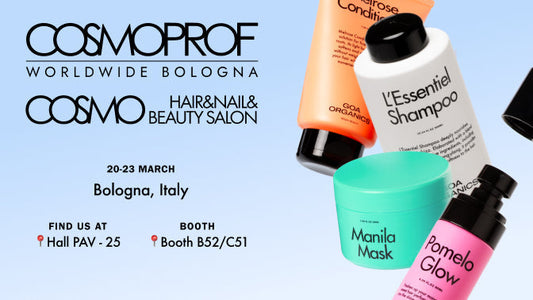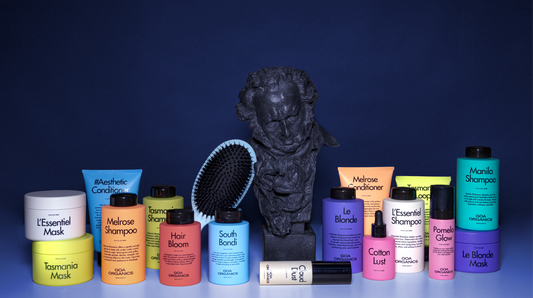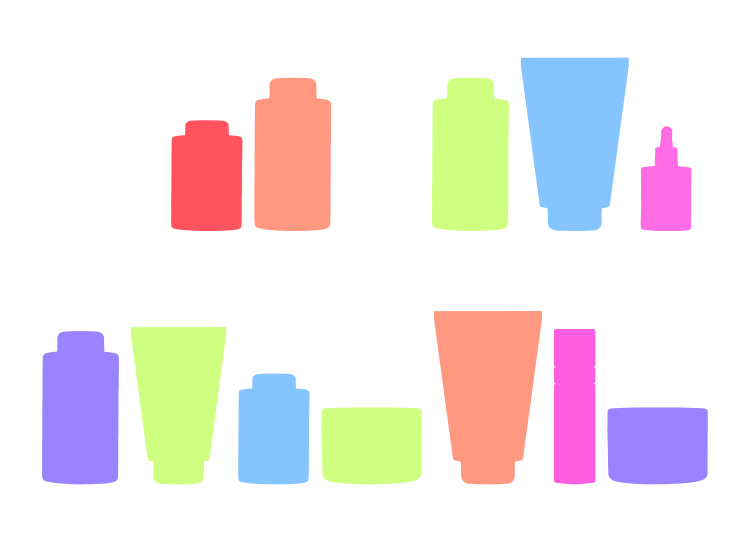My friend, if you thought that water was one of the besties of your hair, today we bring you fresh bad news, and that is that water is one of the things that can damage your hair! 😱 How strong, isn't it? So, if you need to know the reason for this impossible love affair between your hair and H2O, read on, because it gets really interesting.
What effect does water have on my hair?
Let's start at the beginning: hair is hygroscopic, meaning it has the ability to absorb water (and this, it seems super cool, but sometimes it's not so cool). When your hair absorbs water, whether from the shower, the sea or the pool, the cuticle rises, and the hair fiber swells like crazy, increasing its diameter, making it more easily damaged.
And, my friend, the more damaged the cuticle is, the more water penetrates inside it, damaging it even more, and this love story ends up being more disastrous than Bridget Jones and Mr. Darcy.
On this basis, you will have guessed that there are certain things that are totally forbidden if we want to have a healthy and shiny hair (you read that right, if you damage the cuticle, your hair becomes ugly and ugly, and we don't want that), such as going to sleep with wet hair or braiding your hair like Rapunzel when it is still wet.
Is it good to go to sleep with wet hair?
No, in fact it's the worst thing you can do! 🙅🏼
Going to bed when your hair is not yet dry causes a lot of friction with the pillow and sheets, tangling and damaging the cuticle and hair fiber even more.
Inflammation of the scalp can also appear, making you itch like there's no tomorrow, not to mention that such a humidity-laden environment would invoke the fungus Malassezia fungus, which is no more and no less the culprit of the appearance of dandruff. In short, a tragedy. 🤯
Wash your hair with hot water or cold water?
Yes darling, the water temperature matters (and a lot). 💥
That hot water removes dirt better is a fact, but that it washes away the lipids in your hair mercilessly, too. In addition, it increases hair porosity, because it helps to lift the cuticle, causing your hair to absorb more moisture, and frizz, or frizz, that we love so much (irony, of course).
On the other hand, cold water would not clean the excess sebum and dirt from our scalp very well, so the ideal would be to always use lukewarm water.
Does salt and chlorine affect hair?
And if you wonder how salt and chlorine water affect your hair, you should know that almost everything is the fault of the pH of the water (chlorine and salts are also to blame, eh), since in both cases the pH is alkaline, and like hot water, they destroy the lipids of your hair, making it brittle and super dry.
But be careful, the hardness of shower water 🧖🏽♀️ can also damage your hair fiber due to the presence of minerals such as calcium or magnesium that can damage the cuticle, and dry out your hair, as well as oxidize colored or highlighted hair, making them take that yellow or orange tone that is not cool at all.
How to take care of your hair?
Last but not least, there are a few little tricks that can improve your hair's relationship with water, such as using an oil-loaded serum from mid-lengths to ends before washing your hair, so that the oils fill in the cuticle's gaps, preventing the fiber from swelling so much. In this case the Cotton Lust, with coconut and avocado oil, would be brutal, and you can also use it before exposing your hair to the water at the beach or pool, and it smells amazing, what more could you ask for?
Serum
Frequent use
Shower filters are also a great option to remove excess lime and mineral salts, and thus keep our hair safe from the hardness of the water.
Don't worry, my friend, all this I've told you about water and what happens to your hair when it's near it, it's not going to make it fall out or anything like that, but if you don't protect your hair from water, what you will have are split ends, and that's also a drama, right?












